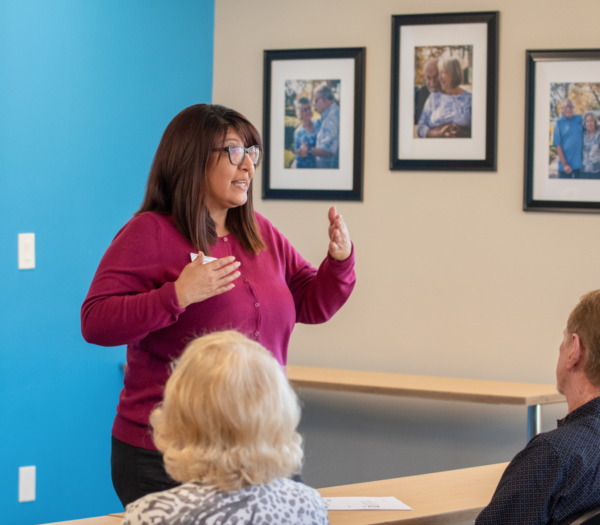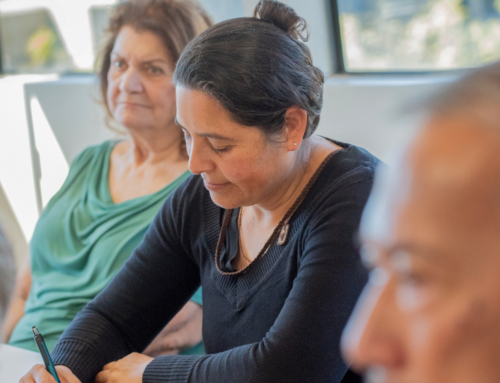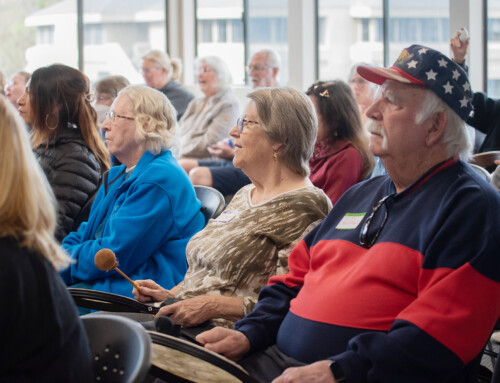
In part two of our communication series by our Support Group Specialist/Clinical Care Coach, Ellen Boucher, she’ll discuss how to prepare for conversations and the importance of verbal and non-verbal communication. Different aspects of this include being cognizant of what our intention is before we begin a conversation, thinking about different paths the conversation can take, being aware of how we are feeling, how the other person is feeling, how rested we are, and the extent of our capabilities.
Importance of Verbal and Non-Verbal Communication
Are you using verbal communication tools to make your message clear?
The words you use and how much you explain (or don’t explain) are just two of the ways that can create or block your success in a conversation. Knowing the circumstances of the individual you are speaking with should be used to guide how you present ideas. Fewer words and simple statements can allow everyone to understand concepts more easily. However, when communicating with someone who is living with memory loss, it’s even more important to keep statements short and simple. What you say will need to match the circumstances of the individual and will be constantly changing. This will require you to approach each situation with the awareness that’s needed for success in those conversations.
The impact of your non-verbal communication.
It is also very important to be aware that your non-verbal communication will be equally impactful in a conversation as your words. Your body language, facial expressions, and tone of voice will often send messages before you even say your first word. As the brain changes, there is less and less understanding of words, as well as a decreasing ability to remember what was said. Due to this, people living with cognitive impairment will come to depend more on your non-verbal communication. The messages the person will base their response on will depend on what they see and your tone of voice. Success can begin when you first walk into the room with a positive and peaceful demeanor.
But I am so tired/busy/frustrated!
Our days take a toll physically, mentally, and emotionally. It can be difficult to keep everything going and add more – such as thinking and planning ahead for conversations. Call us at 858.492.4400 and speak with one of our Clinical Care Coaches (Spanish speakers available) who can discuss your unique situation and help you practice ways to more effectively communicate with the people in your world. Also check out our free education classes, support groups, social activities, & more. We are here to support you!
Communication Series
PART 1: Ways to Improve Communication Skills
PART 3: Using Active Listening to Improve Communication Skills
PART 4: How to Practice Using Communication Strategies
Sign up for our email newsletter or follow our social media pages for updates.
Written by Ellen Boucher, BSW





